#ASRASPRING23 Social Media
Stay connected before, during, and after the meeting by following the 2023 Spring Meeting Social Media Team here.
Follow and tweet using #ASRASPRING23 and #ASRA100!
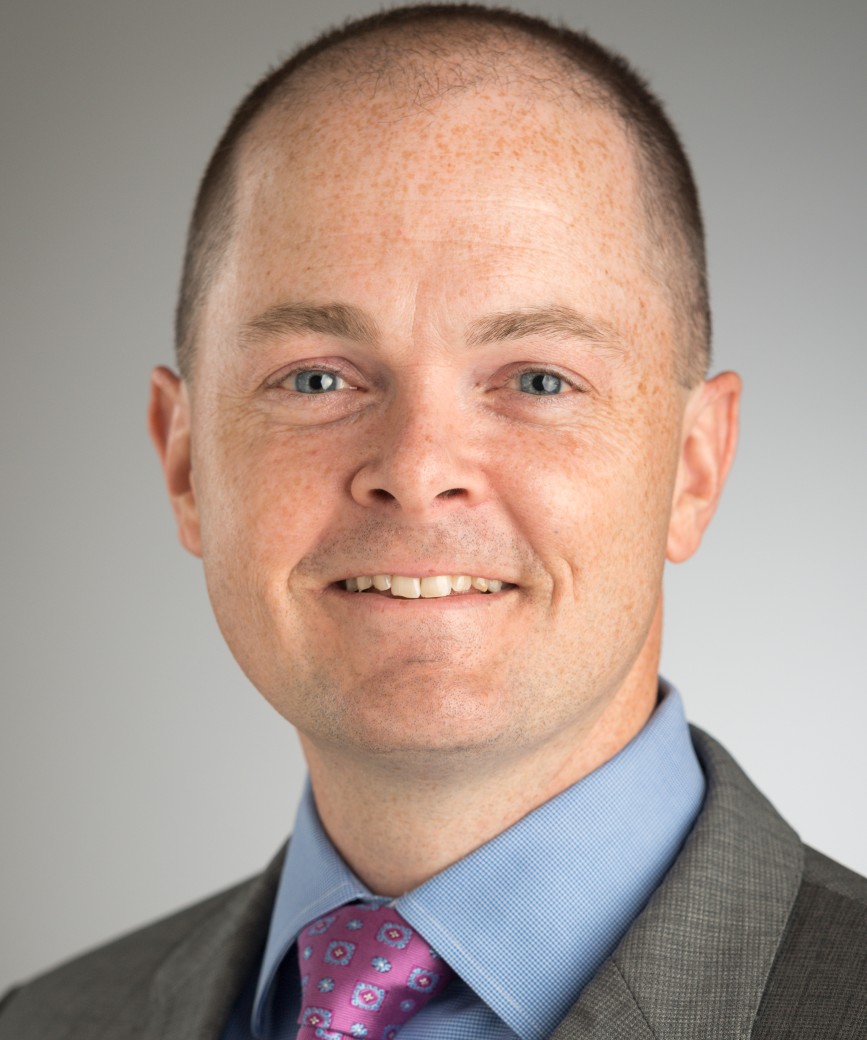
Chad Brummett, MD, is a professor at the University of Michigan where he serves as the senior associate chair for research. He has more than 250 publications, including articles in top journals such as JAMA, JAMA Surgery, Anesthesiology, and Annals of Surgery. He is the co-director of the Opioid Prescribing Engagement Network (OPEN) at the University of Michigan, which aims to apply a preventative approach to the #opioid epidemic in the United States through appropriate prescribing after surgery, dentistry and emergency medicine. In addition, his research interests include predictors of acute and chronic post-surgical #pain and failure to derive benefit for interventions and surgeries primarily performed to treat pain. In particular, Dr. Brummett is interested in the impact of a fibromyalgia-like or centralized pain phenotype on analgesic outcomes. He is the co-principal investigator of multiple NIH grants studying these concepts, and also receives funding from the Michigan Department of Health and Human Services, Substance Abuse and Mental Health Services Administration (SAMHSA), CDC, and multiple other foundations.
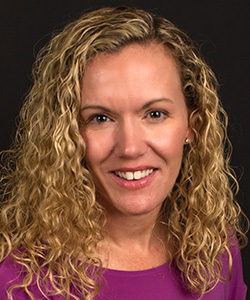
Melissa Byrne, DO, MPH, is a graduate of Michigan State University College of Osteopathic Medicine. After residency in anesthesiology at the University of Michigan, she worked in private practice in Virginia before returning back to her home in Michigan to complete a fellowship in Regional and Ambulatory Anesthesia. Her interests include resident education and Point of Care Ultrasound (POCUS). She has recently been named assistant director for POCUS where she is active in curriculum development.

Stephanie Cheng, MD, DABMA, completed her anesthesiology residency at Yale and her regional anesthesia and acute pain management fellowship at Hospital for Special Surgery. She is also a board-certified medical acupuncturist and serves as the director of the Perioperative Integrative Medicine Program at Hospital for Special Surgery where she successfully integrates medical acupuncture in the perioperative setting. Her primary interest is the optimization of patients undergoing orthopedic surgery and the integration of non-pharmacologic/novel modalities to improve perioperative outcomes.
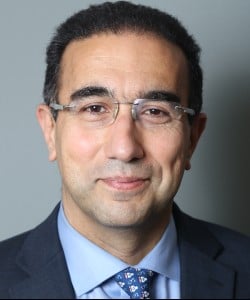
Nabil Elkassabany, MD, MSCE, MBA, is a professor of anesthesiology and the vice chair of clinical operations in the department of anesthesiology at the University of Virginia at Charlottesville. Dr. Elkassabany was the division chief of regional anesthesia and acute pain medicine at the University of Pennsylvania from 2010-2022. His research interest focuses on patients’ outcomes after orthopedic surgery, specifically patients who receive regional anesthesia in different clinical settings. He is especially interested in improving patient outcomes after major joint arthroplasty and defining the value added by regional anesthesia and acute pain medicine to patients’ perioperative experience. Dr. Elkassabany is a member of the ASRA Pain Medicine Board of Directors. He also chairs the educational track subcommittee on regional anesthesia and acute pain at the American Society of Anesthesiologists.
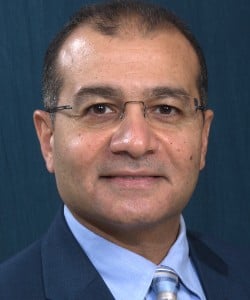
Hesham Elsharkawy, MD, MBA, MSc, FASA, is a staff member at MetroHealth and associate professor at Case Western Reserve University in Cleveland, OH. Dr. Elsharkawy’s research focus has been on development of new technologies, new pain procedures, and the transition from acute to chronic pain. This interest led him to establish the Persistent Postoperative Pain Special Interest Group. He has experience in research, has contributed to the field of regional anesthesia, and has been invited to many lectures and workshops, in national and international conferences, and on numerous grand rounds. Dr. Elsharkawy is also actively involved in multiple research projects and multicenter studies and has received multiple grants to support research projects. The core of his educational activities is teaching residents and fellows in different clinical settings, as well as during formal lectures, journal clubs, simulation sessions, workshops, and problem-based learning discussions. He earned an MBA from Cleveland State University, which helps him to lead many departmental projects.

Jeff Gadsden, MD, FRCPC, FANZCA, is an associate professor of anesthesiology at Duke University, and chief of the Division of Orthopedic, Plastic, and Regional Anesthesiology. He graduated with an MD in 1999 from Queen’s University in Kingston, ON, Canada, and undertook training in anesthesiology at the University of Toronto and St. Luke’s-Roosevelt Hospital in New York City. Dr. Gadsden holds fellowships in anesthesia with the Royal College of Physicians and Surgeons of Canada and the Australian and New Zealand College of Anaesthetists, and he is board certified by the American Board of Anesthesiology. After working in both Canada and Australia, he decided to return to the United States to focus on his teaching and research interests of ultrasound-guided nerve blockade, the monitoring of regional anesthesia, trauma, and education.
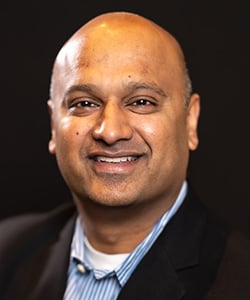
Rajnish Gupta, MD, is a professor of anesthesiology at Vanderbilt University Medical Center in Nashville, TN. His clinical focus is on regional anesthesia, acute pain management, and orthopedics anesthesia. He has been the director of the Acute Pain Service and now currently serves as the director of Orthopedics Anesthesia at VUMC. Dr. Gupta’s research focus includes regional anesthesia techniques, resident education, technology integration into clinical practice, smartphone app development, and endogenous mechanisms of pain experience.

Monica W. Harbell, MD, FASA, is an assistant professor in the department of anesthesiology and perioperative medicine at Mayo Clinic in Phoenix, AZ. She also serves at the associate chair of education and anesthesiology residency program director.
Stephen Haskins, MD, is a regional anesthesiologist trained at the Hospital for Special Surgery in New York, NY. During his fellowship, Dr. Haskins developed an interest in Point-of-Care Ultrasound (POCUS), specifically focused cardiac ultrasound, lung ultrasound, abdominal ultrasound, and gastric ultrasound. Dr. Haskins is the co-founder and chair of the Perioperative POCUS Special Interest Group (SIG). He is also lead author for POCUS for the Regional Anesthesiologist and Pain Specialist Review Series in Regional Anesthesia & Pain Medicine (RAPM). Dr. Haskins is the chair of #ASRASPRING23.

Melody Herman, MD, is director of regional anesthesiology at Carolinas Medical Center. She completed residency at St. Luke’s-Roosevelt Hospital and regional anesthesiology and acute pain fellowship at Massachusetts General Hospital. Most notably, she began creating short regional videos, “Nerve Block TikToks”, in 2020. Dr. Herman is associate faculty for ASRA Pain Medicine, newsletter liaison for the Private Practice Special Interest Group, and serves as US representative for the ESRA International Committee.

Nadia Hernandez, MD, completed her anesthesiology residency at the Icahn School of Medicine at Mount Sinai Health System in New York, NY, followed by fellowship training in regional anesthesia and acute pain medicine. She moved back home to Texas where she serves as an assistant professor of anesthesiology at the University of Texas (UT) at Houston McGovern School of Medicine. After one year, Dr. Hernandez revamped the regional anesthesiology fellowship and was promoted to director of regional anesthesiology at UT Houston as well as program chair of the Regional Anesthesia and Perioperative Ultrasound Fellowship. She is one of the co-founding members of the ASRA Pain Medicine Perioperative Point-of-Care Ultrasound Special Interest Group.

Maggie Holtz, MD, is a board certified anesthesiologist. Having previously served as assistant professor of anesthesiology at Emory and then at Yale, she now works for Georgia Anesthesiologists, P.C., where she is chief of regional and orthopedic anesthesia at WellStar Kennestone Regional Medical Center in suburban Atlanta. Dr. Holtz speaks across the country on opioid minimization and enhanced recovery after surgery, and also teaches at regional anesthesia workshops both nationally and internationally.

Kellie Jaremko, MD, PhD, is an assistant professor at Johns Hopkins with a clinical and research focus on optimization of perioperative pain management specifically in opioid tolerant and opioid use disorder patients. She is fellowship trained in regional anesthesia and acute pain medicine and completed an MD/PhD in neuroscience at Thomas Jefferson University. She is passionate about teaching, educational outreach, and pain education for medical professionals and patients. Dr. Jaremko will be joining the Johns Hopkins’ regional anesthesia fellowship as the associate program director in 2023.
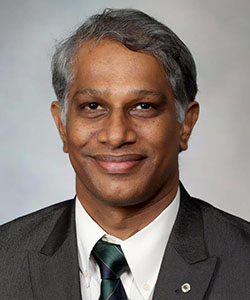
Hari Kalagara, MD, is passionate about regional anesthesia and has completed a regional anesthesia fellowship at Cleveland Clinic in Cleveland, OH. He has attained European Diploma in Regional Anesthesia (EDRA) by the European Society of Regional Anaesthesia and Pain Therapy and was awarded the ASRA Resident/Fellow of the Year Award in 2017. Dr. Kalagara served as Point-of-Care Ultrasound (POCUS) Director at the University of Alabama at Birmingham (UAB). Dr. Kalagara holds certifications in perioperative echocardiography and critical care echocardiography by the National Board of Echocardiography (NBE). Dr. Kalagara is currently working as an assistant professor in Anesthesiology and Perioperative Medicine at the Mayo Clinic with special interest in regional anesthesia and POCUS. He is currently the Chair of ASRA Pain Medicine POCUS Courses.
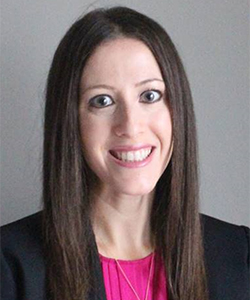
Michelle Kars, MD, completed her training in both general pediatrics and anesthesiology at New York Presbyterian Weill-Cornell in New York, followed by a fellowship in pediatric anesthesia at Children’s National Medical Center in Washington, DC. Dr. Kars is the director of the Pediatric Acute Pain Service at Northwell Cohen Children’s Medical Center and the director of Continuing Medical Education for the department of anesthesiology at Long Island Jewish Medical Center. She is an assistant professor of anesthesiology at the Zucker School of Medicine at Hofstra/Northwell where she serves as a part of the core faculty for the anesthesia residency. Her clinical interests include point-of-care ultrasound application in pediatrics as well as research in regional anesthesia techniques in infants and children to minimize opioid requirements in the perioperative period.
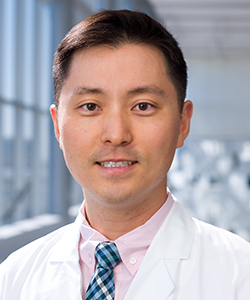
James Kim, MD, is an assistant professor in the Department of Anesthesiology and Critical Care at The University of Pennsylvania Perelman School of Medicine in Philadelphia, PA. Dr. Kim received his MD from Georgetown University School of Medicine and completed his residency at Georgetown University Hospital in Washington, DC, where he won the intern/resident teacher of the year award 4 years in a row and the best academic performance award. He then completed his fellowship at Duke University Hospital in Durham, NC, after which he joined the faculty at The University of Virginia (UVA) in Charlottesville, VA for two years. Dr. Kim won The Faculty Teacher of the Year Award after his first year as an attending at UVA. Currently, Dr. Kim is an active member of the regional anesthesia and acute pain service and won The Faculty Teacher of the Year Award after his first year at The University of Pennsylvania. Dr. Kim is involved in resident/fellow education and clinical research.
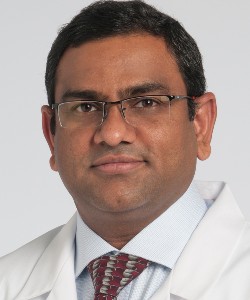
Sree Kolli, MD, EDRA, is a regional anesthesiologist and point-of-care ultrasound (POCUS) enthusiast. Dr. Kolli trained at the Cleveland Clinic for his anesthesia residency and fellowship in acute pain and regional anesthesia. He completed training in the United Kingdom and attained European Diploma in Regional Anesthesia from the European Society of Regional Anaesthesia and Pain Therapy in 2011. Dr. Kolli is the organizer and primary activity director for the Cleveland Clinic's Cadaver Regional Anesthesia & POCUS Workshops and the Chronic Pain Ultrasound Workshops at the Pain Management Symposium. He is currently the associate program director for the regional anesthesia fellowship program at the Cleveland Clinic.
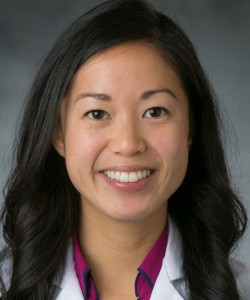
Amanda Kumar, MD, is an assistant professor of anesthesiology at Duke University Medical Center. She is the program director for the Regional Anesthesiology and Acute Pain Medicine fellowship at Duke. Dr. Kumar is also interested in medical education and simulation, and serves as the graduate medical education simulation liaison for Duke's Human Simulation and Patient Safety Center.
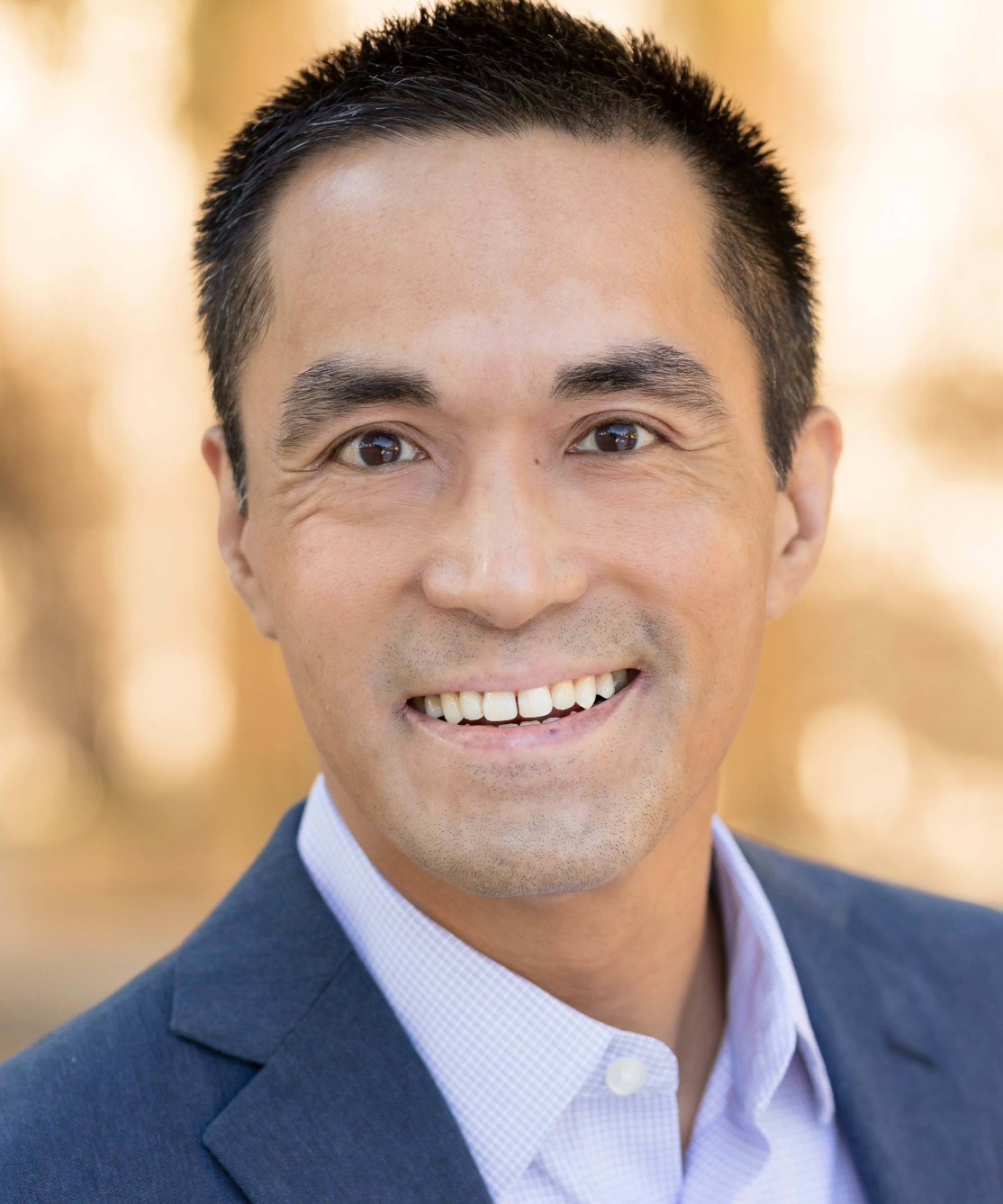
Edward Mariano, MD, MAS, FASA, is professor and senior vice chair in the department of anesthesiology, perioperative and pain medicine at Stanford University School of Medicine and chief of anesthesiology and perioperative care service at the VA Palo Alto Health Care System in Palo Alto, CA. Dr. Mariano has developed techniques and patient care pathways to improve postoperative pain control, patient safety, and other outcomes and has published more than 250 peer-reviewed articles and book chapters. He is president of the California Society of Anesthesiologists for 2022-23 and has held other leadership positions in the American Society of Anesthesiologists, ASRA Pain Medicine, and multiple journals. He is a recipient of the Veterans Health Administration’s John D. Chase Award for Physician Executives Excellence and has worked on key national healthcare initiatives in the United States, including the accreditation of regional anesthesiology and acute pain medicine fellowships, pain management guidelines and hospital-based standards, development of quality and cost measures in perioperative care, and the National Academy of Medicine's Action Collaborative Countering the U.S. Opioid Epidemic.
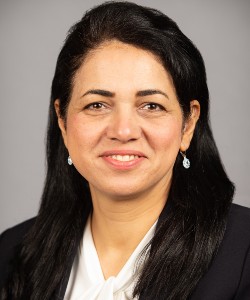
Eman Nada, MBBCH, PhD, is an associate professor, chief of regional anesthesia, and medical director of the acute pain service at the Renaissance School of Medicine at Stony Brook University. She has completed a regional anesthesia fellowship and another in neuroanesthesia at the Cleveland Clinic Foundation. She is passionate about education, which she demonstrates through participating in workshops and other educational activities. She believes in the importance of having strong knowledge of anatomy to be a good regional anesthesiologist. Her interests include prolonging nerve blocks and integrating them into the multimodal pathway to reduce or even replace the use of opioids.
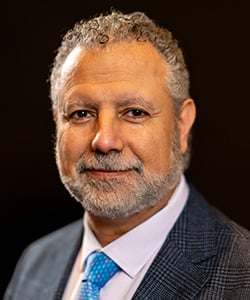
Samer Narouze, MD, PhD, is a professor of anesthesiology and surgery at NEOMED and Ohio University. He is board certified in anesthesiology, pain medicine, headache medicine, and interventional pain management. He is the chairman of the Center for Pain Medicine at Western Reserve Hospital in Cuyahoga Falls, OH. Dr. Narouze is the president of ASRA Pain Medicine. He founded the American Interventional Headache Society (@aihsHeadache) and serves on many committees for national and international headache and pain organizations. He has published about 200 research papers, review articles, book chapters, and abstracts. His areas of interest are #pain, #headache, #cannabinoids, #DiversityandInclusion, #wellness, #obesity, and #ultrasound.
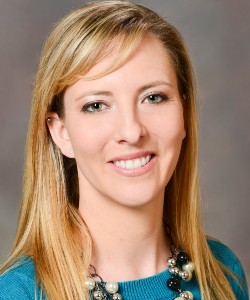
Jennifer Noerenberg, MD, is a board-certified anesthesiologist who completed a fellowship in regional anesthesia and perioperative pain management at Washington University in St. Louis in 2014. She completed residency at the University of California, Davis. She is a partner physician with the Southern California Permanente Medical Group and works for the San Diego region. Her interests include working to develop perioperative pain protocols for several types of surgical applications and developing tools to educate both patients and physicians of resources for multimodal and regional anesthesia techniques. She has recently taken on the roles of the Enhanced Recovery After Surgery anesthesia lead for Kaiser San Diego as well as the California Society of Anesthesia Wellness Task Force Chair.
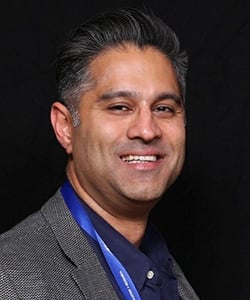
Amit Pawa, MBBS, is a consultant anaesthetist at Guy's & St Thomas’ NHS Foundation Trust in London, UK, where he is the lead for regional anaesthesia. He was the first chairman of the London Society of Regional Anaesthesia (LSORA). He is the immediate past president of Regional Anaesthesia-UK (RA-UK) and also serves as an RA-UK board member and a European Society of Regional Anaesthesia and Pain Therapy (ESRA) council member. Dr. Pawa has the ESRA European Diploma in Regional Anaesthesia (EDRA) and is extremely passionate about education in USRA. He has created a collection of videos which all reside on the LSORA YouTube channel. His subspecialist interest is regional anesthesia for breast.
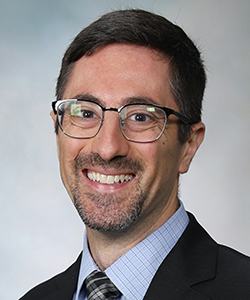
Steven Porter, MD, is assistant professor of anesthesiology in the department of anesthesiology and perioperative medicine at Mayo Clinic in Jacksonville, FL. He is the program director for Mayo Clinic Florida’s Regional Anesthesiology and Acute Pain Medicine fellowship, the medical director for Mayo Clinic Florida’s Quality Academy, and the chair of his hospital’s controlled substance and pain oversight team. Dr. Porter has lectured at regional, national, and international meetings on topics related to regional anesthesia and acute pain management.
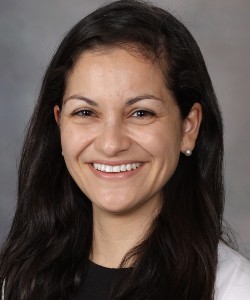
Bridget Pulos, MD, is a regional anesthesiologist at Mayo Clinic in Rochester, MN. She graduated from Tufts University in Medford, MA, and completed medical school, anesthesiology residency, and regional anesthesia and acute pain medicine fellowship at the University of Pennsylvania in Philadelphia, PA. Her interests include resident education, ultrasound-guided regional anesthesia, and the impact of regional anesthesia on perioperative outcomes. Dr. Pulos is also the Program Director for the RAAPM Fellowship at Mayo Rochester.

Engy Said, MD, is an associate clinical professor in the Department of Anesthesiology at UC San Diego (UCSD) and serves as director of the Acute Pain Service. She completed her medical degree education at UCLA followed by anesthesiology residency training at University of Southern California (USC) and UCSD. She then completed a regional anesthesia and acute pain fellowship at UCSD in 2014. Her research interests center around acute pain management, opioid sparing modalities, and novel regional anesthesia techniques, including neuromodulation and cryanalgesia.
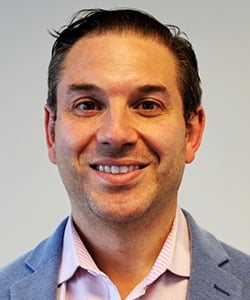
Gary Schwartz, MD, is the director of acute pain management at Maimonides Medical Center in Brooklyn, NY. He is board certified in both pain management and anesthesiology. Dr. Schwartz completed an interventional pain fellowship at Mount Sinai School of Medicine, after finishing his anesthesia residency at St. Vincent's Hospital and Maimonides Medical Center. He received his MD from the State University of New York Upstate College of Medicine and graduated Magna Cum Laude from Union College in Schenectady, NY. >Dr. Schwartz focuses on back pain, neck pain, spinal cord stimulation, nerve pain, joint pain, and failed back surgery syndrome. At Maimonides Medical Center, Dr. Schwartz focuses on assisting hospitalized patients with postoperative pain and also educates anesthesia residents and medical school students. Dr. Schwartz also serves as a committee member for ASRA Pain Medicine and the American Society of Anesthesiologists.
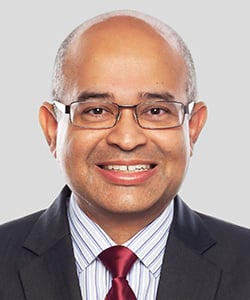
Vishal Uppal, MBBS, FRCA, is an associate professor and director of the regional anesthesia fellowship program at Dalhousie University, Halifax, Canada. He is also the current chair of the Canadian Anesthesiologists Society (CAS) Regional Anesthesia and Acute Pain section. His clinical experience and content expertise are in regional anesthesia, acute pain, obstetric anesthesia, and evidence synthesis. He completed medical school in India, an anesthesia residency and research fellowship at Glasgow University, UK, and a regional anesthesia fellowship from the University of Western Ontario. He has authored more than 60 peer-reviewed papers and book chapters. Currently, he serves as an associate editor of the Canadian Journal of Anesthesia and Regional Anesthesia and Pain Medicine journals.
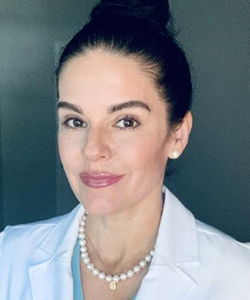
Alicia Lopez Warlick, MD, is a private practice anesthesiologist and serves as the chief of the Regional Anesthesia and Acute Pain Medicine in the WakeMed Health systems in Raleigh, NC. She has led her team of skilled physicians in performing the newest pain techniques while creating and matching multiple ERAS pathways with the most current interventional procedures. She is a dedicated member of ASRA Pain Medicine and serves as the vice-chair of the Website & Social Media committee. She was instrumental in creating and curating the ‘ASRA BEST’ educational resource and enjoys fitness and healthy eating.